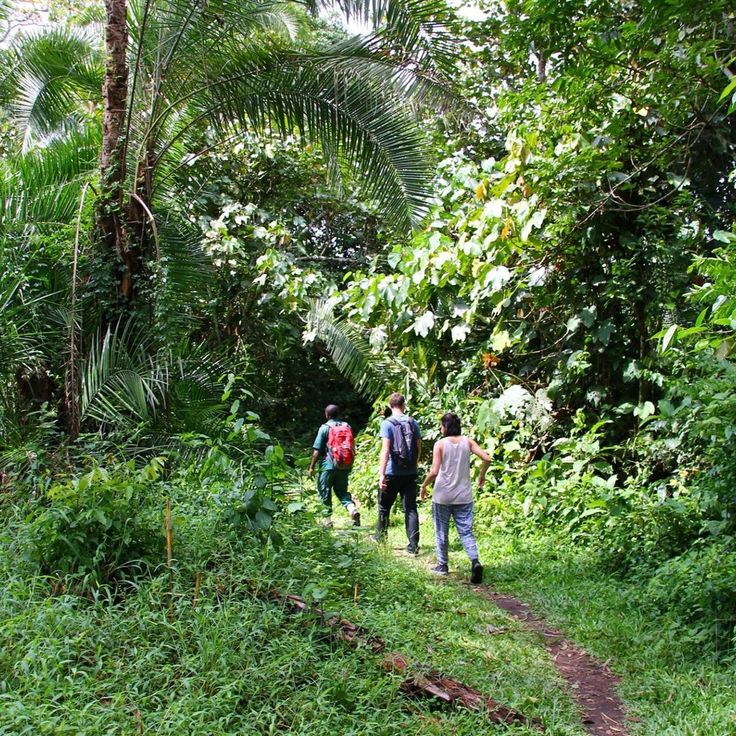Sustainable Tourism in Uganda
Uganda, known as the Pearl of Africa, is a rising star in sustainable tourism. With its rich biodiversity, unique wildlife, and vibrant cultures, the country has made significant strides in promoting responsible tourism practices. These efforts balance environmental conservation, community well-being, and economic growth, ensuring a positive impact for generations to come. Below is an in-depth exploration of sustainable tourism in Uganda:
1. Wildlife Conservation Through Tourism
Uganda’s sustainable tourism model prioritizes wildlife conservation as a cornerstone of its strategy. Key initiatives include:
a) Gorilla Trekking as a Conservation Tool
- Bwindi Impenetrable National Park and Mgahinga Gorilla National Park are famous for mountain gorilla trekking, a flagship activity that funds conservation efforts.
- Revenue from trekking permits (at $700 per person) is reinvested into park maintenance, ranger salaries, and anti-poaching measures.
- Gorilla tourism has been instrumental in increasing mountain gorilla populations, which were once critically endangered.
b) Community-Led Conservation
- Uganda collaborates with local communities to mitigate human-wildlife conflict and promote conservation. Programs like UWA (Uganda Wildlife Authority) revenue sharing ensure 20% of park earnings are distributed to surrounding communities.
- Wildlife corridors are maintained to reduce habitat fragmentation, enabling animals to roam freely without disturbing human settlements.
c) Protecting Endangered Species
- Conservation efforts extend to species like the shoebill stork, chimpanzees, and tree-climbing lions, all of which are major tourism draws.
- Sanctuaries such as Ziwa Rhino Sanctuary have successfully reintroduced rhinos to Uganda after their extinction in the wild during the 1980s.
2. Empowering Local Communities
Sustainable tourism in Uganda is deeply intertwined with community empowerment. Key initiatives include:
a) Revenue Sharing and Employment
- Tourism revenue supports local development projects, including schools, health clinics, and clean water facilities.
- National parks and lodges prioritize hiring locally, creating jobs and fostering a sense of stewardship among residents.
b) Cultural Tourism Initiatives
- Cultural experiences, such as visiting the Batwa pygmies near Bwindi or engaging with the Karamojong people in northeastern Uganda, allow tourists to learn about traditional lifestyles while providing income for the communities.
- Local artisans benefit from selling crafts, such as woven baskets and wooden carvings, at tourism hubs.
c) Homestays and Community-Based Lodges
- Tourists can opt for homestay experiences or stay at community-owned lodges, such as Ride 4 a Woman in Bwindi. These ventures directly benefit local families and foster authentic cultural exchanges.
3. Eco-Friendly Lodging and Practices
Uganda’s hospitality industry has embraced eco-tourism, offering environmentally conscious accommodation options:
a) Eco-Lodges and Camps
- Many lodges in Uganda, such as Bwindi Lodge and Kyambura Gorge Lodge, are built using sustainable materials and operate with minimal environmental impact.
- Solar power, rainwater harvesting, and waste recycling are common practices at these properties.
b) Wildlife-Friendly Design
- Some lodges, like Ishasha Wilderness Camp in Queen Elizabeth National Park, are designed to blend seamlessly with the environment, minimizing disruption to local ecosystems.
c) Sustainable Tourism Certification
- Uganda has introduced guidelines for eco-certification, encouraging hotels and lodges to adopt green practices while maintaining high service standards.
4. Minimizing Environmental Impact
Efforts to reduce tourism’s ecological footprint are a critical part of Uganda’s sustainability agenda:
a) Regulated Visitor Numbers
- Gorilla trekking is strictly regulated, with only 8 visitors allowed per gorilla group per day. This ensures minimal disruption to the gorillas and their habitat.
- Similar limits apply to chimpanzee tracking in Kibale Forest National Park.
b) Plastic Reduction Campaigns
- Uganda has implemented a ban on single-use plastics in protected areas. Tour operators and lodges encourage guests to use reusable bottles and bags.
c) Promoting Low-Impact Activities
- Activities such as birdwatching, hiking, and canoeing are promoted as eco-friendly alternatives to traditional safaris, offering unique ways to experience Uganda’s landscapes.
5. Advancing Education and Awareness
Tourism in Uganda is used as a platform to educate both visitors and locals about the importance of conservation:
a) Visitor Education
- Pre-trek briefings for gorilla and chimpanzee tracking emphasize respecting wildlife, maintaining a safe distance, and leaving no trace in the environment.
- Interpretation centers, such as those at Queen Elizabeth National Park, provide insights into Uganda’s ecosystems and conservation efforts.
b) Community Awareness
- Programs like Conservation Through Public Health (CTPH) engage communities near Bwindi to balance human health, gorilla conservation, and sustainable livelihoods.
- Youth-focused initiatives encourage environmental stewardship among future generations.
6. Supporting Responsible Tour Operators
Uganda is home to many responsible tour operators who prioritize sustainability by:
- Partnering with eco-friendly lodges.
- Employing local guides and staff.
- Offering itineraries that support conservation and community projects.
- Advocating for ethical wildlife encounters that prioritize animal welfare.
7. Challenges and Ongoing Efforts
Despite its achievements, Uganda faces challenges in fully realizing its sustainable tourism potential:
- Human-Wildlife Conflict: Encroachment on wildlife habitats occasionally leads to conflict, requiring ongoing community engagement and mitigation measures.
- Overtourism Concerns: Popular areas like Bwindi face the risk of overtourism if visitor numbers are not carefully managed.
- Climate Change: Rising temperatures and unpredictable weather patterns threaten ecosystems and biodiversity.
Efforts are underway to address these challenges, including increased conservation funding, expanded community involvement, and the promotion of off-the-beaten-path destinations.
8. Why Choose Uganda for Sustainable Tourism?
Uganda stands out as a sustainable destination for its commitment to:
- Conserving rare wildlife, particularly mountain gorillas and chimpanzees.
- Empowering local communities by sharing tourism benefits and preserving cultural heritage.
- Offering authentic, low-impact experiences, from gorilla trekking to eco-lodge stays.
By visiting Uganda, travelers actively contribute to conservation efforts and the well-being of local communities, making their trip meaningful and impactful.
Conclusion
Sustainable tourism in Uganda goes beyond providing unforgettable adventures—it ensures that the country’s natural and cultural treasures are preserved for future generations. By choosing Uganda as your destination, you are not only embarking on a journey of discovery but also becoming a partner in its mission to balance tourism, conservation, and community development.




